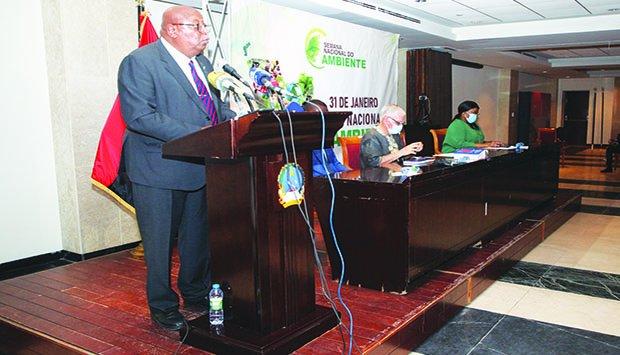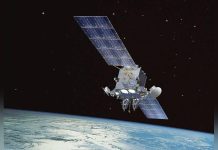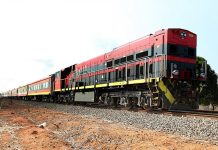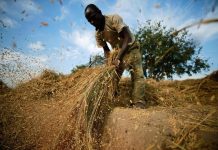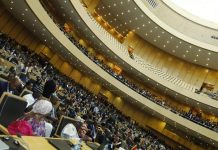Africa-Press – Angola. The Minister of Culture, Tourism and Environment, Filipe Zau, highlights the importance of environmental education for citizens in the country, with a view to improving the social well-being of communities, preserving life and guaranteeing the survival of the human species.
The minister who was speaking on Monday (31), in Luanda, during the closing of the National Environment Week, which is celebrated on January 31, this year under the motto: “Strengthen Environmental Action to achieve the Sustainable Development Goals “, brought together several experts from the sector at the Agostinho Neto Memorial, in Luanda.
The official also highlighted the need to empower people through the improvement of education, health, housing, environment and food conditions, ensuring that the fruits of economic development are translated into gains for the populations.
Filipe Zau also underlined that it is crucial to educate citizens in order to take advantage of the most correct use of the environment and available resources, avoiding unnecessary deaths, as well as prolonging their quality of life and promoting the status of effective citizenship. economic.
“It is necessary to educate citizens for solidarity, because without this assumption, fertile ground is created for the emergence of social conflicts, where enormous amounts of resources are spent on avoidable problems”, he recalled.
According to the minister, the phenomenon of the planetary economy has shown that solidarity currently transcends the dimension of moral duty, voluntarily assumed by some as an imperative for human survival.
For Filipe Zau, the social and environmental changes that have taken place in an accelerated way in recent years make it important to have a broad orientation towards environmental sustainability, not only in Angola, but also in the world.
On the occasion, the minister considered that the growth of a country corresponds to the quantitative increase of goods and services which, in turn, provides a structural evolution, resulting from the transformation of proportions and relations in the productive system.
The holder of the Culture, Tourism and Environment portfolio also pointed out environmental degradation as one of the main causes of the unfeasibility of economic growth, which leads to an increasing number of people in poverty, xenophobia, racial prejudice, distancing between industrialized and developing countries, an inefficient education system and the lack of adequate and comprehensive professional training in the sector.
“These issues should not be underestimated, nor ignored, because in the medium and long term they can affect the survival of any species”, he considered. He reiterated the Government’s commitment to remain aligned with climate action and with the adoption of a low carbon development model.
Filipe Zau recalled that on this date, in 1976, the first president of Angola, Agostinho Neto, said that “man is part of life, he is not the whole. And his own balance depends on the balance of the whole”, the minister said, Also, the laying of a wreath in search of the first President of Angola and the planting of a tree having also been awarded certificates of merit to environmentalists and associations that work in favor of environmental causes in Angola.
For More News And Analysis About Angola Follow Africa-Press

